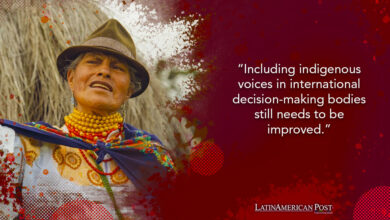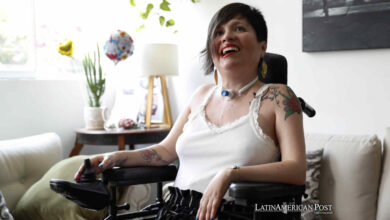Nuevo León, the state of Mexico where homophobia prevails
The state of Nuevo León in Mexico is fighting an open battle against the LGBTIQ + community, which is now a problem for the State Human Rights Commission.

Monterrey from the Macro Flag on the Cerro del Obispado. / Photo: wikimedia.com/Joeboxcom
LatinAmerican Post | Juliana Suárez
Listen to this article
Leer en español: Nuevo León, el estado de México donde prima la homofobia
In the 21st century, there is still persecution of LGBTIQ+ people, and that not only happens in traditional and religious countries, such as in the Middle East and Africa, it also happens in western and multicultural countries such as Mexico.
One of the greatest paradoxes that the Latin American country is currently experiencing is that, while it is one of the nations in the world where the LGBTIQ+ community is the most protected because discrimination based on sexual orientation is not constitutionally allowed, it is also one of the states where this community is the most repressed. Mexico is one of the three countries in Latin America (with Ecuador and Bolivia) where there is a strong legal framework, which would mean greater benefits and, above all, security for these people. However, being a Federal Republic, each state has certain freedoms that allow it to be more or less open on issues of this kind.
Thus, Nuevo León, a state in the north of the country and whose capital is Monterrey, one of the main cities, has stood out for its conservatism especially in matters of sexual orientation and abortion. For example, only during 2019, some political sectors of NL, especially the Morena party, party of President Andrés Manuel López Obrador and leftist tendency, voted to punish abortion.
But the focus of the discussion has been the LGBTIQ+ community, which has suffered major setbacks during 2019. The most recent fact and that can cost the state of Nuevo León more than a headache has to do with the expulsion of a student of his school for sexual orientation reasons.
Also read: A true love story: homosexual couple adopts girl with HIV
The 14-year-old student was “expelled by the principal of the campus, for wearing a sweatshirt tied around the waist, an expression she considered typically feminine,” reported El Universal. However, the Movement for Equality, a group against discrimination and that protects LGBTIQ+ rights, said that this was only an excuse to expel the child, when in fact it was an even more discriminatory event. The reality, according to the group, would be that the young man lives with his uncle, who has a same-sex partner.
The uncle of the child and groups for rights and equality filed a complaint with the State Human Rights Commission of Nuevo León (CEDHNL), where they await the response so that the student can return to class.
As reported by the activist of the Equality Movement, Jennifer Aguayo to El Universal, this is not an isolated event in that school, where conservatism has affected other students with single mothers or "tattooed fathers."
Like this one, many other cases occur daily in the most conservative state of Mexico. Although in March of this same year a homosexual couple processed the first equal marriage of the state, many other members of the community have not had the same fortune. In general, there are continual complaints by these people because they have been denied entry to establishments due to their sexual orientation. The problem is that the Local Congress does nothing in the face of this, so local or restaurant owners can do so without being affected.
In September of this year, the Nuevo León Local Congress passed a controversial law that allows doctors to decide whether or not to treat a patient or perform a procedure, taking into account their sexual orientation. The proposal, made by the Committee on Health and Attention to Vulnerable Groups, sought to make use of conscientious objection, which implied a reform of the state health law.
Aprueban incluir la Objeción de Conciencia en la Ley Estatal de Salud.https://t.co/PNfCjUggjT pic.twitter.com/ItcXYrSSaI
— Congreso Nuevo León (@CongresoNL) October 16, 2019
“Conscientious objection is the right consisting in the refusal to perform certain acts or services derived from an order of authority or a legal norm when they contradict one's ethical or moral principles,” affirms the Congress statement. Since then, doctors and other members of the health system may not care for an LGBTIQ + person without having penalties for it. The same also applies in the case of migrants, women who want to abort, indigenous people and patients with HIV, says the Sun of Mexico.




